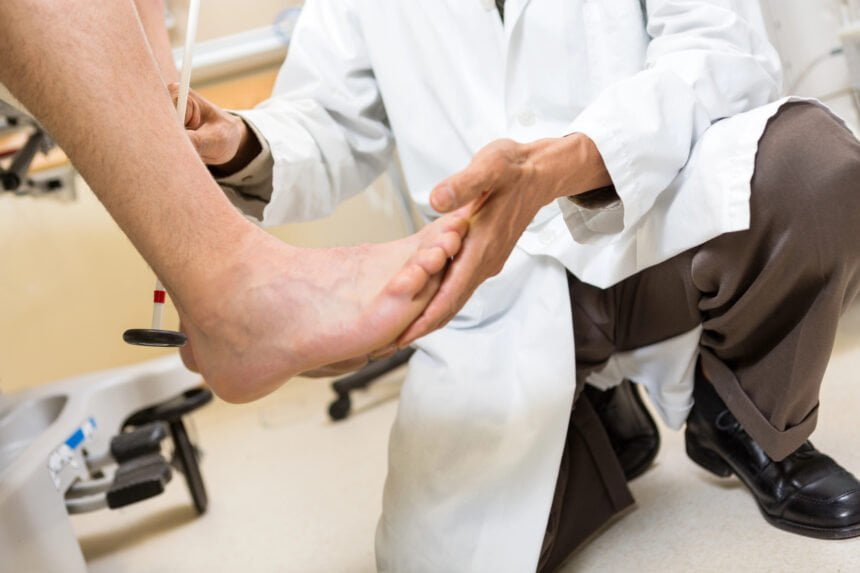The American Podiatric Medical Association reports that only 54% of people feel their foot health is very important. This is about 20 percentage points lower than those concerned about vision, heart and oral health.
This is a problem, since our foot health is more important than most people realize. Did you know that your feet can provide valuable insights into your overall health? Often overlooked, our feet are a mirror reflecting what’s happening inside our bodies.
This blog post will explore the fascinating relationship between foot health and overall health and well-being. By the end of this read, you’ll have a newfound appreciation for those hard-working feet and practical tips to keep them—and you—healthy.
Understanding Foot Anatomy
Our feet are marvels of engineering. Each foot contains 26 bones, 33 joints, and more than 100 muscles, tendons, and ligaments. This complex structure supports our body weight, enables movement, and absorbs shock with every step we take. Given their critical role in daily life, it’s no wonder that any issue with the feet can significantly impact our overall health.
Common Foot Problems and Their Health Implications
Your feet can develop various issues that may seem minor but can indicate broader health concerns. For instance, bunions—a bony bump that forms on the joint at the base of your big toe—can be extremely painful and may suggest structural problems in your feet. If this is the case, it’s best to seek medical care from reputable businesses like The Bunion Cure. Corns and calluses develop from excessive pressure or friction, and plantar fasciitis, characterized by heel pain, can hinder your mobility. These seemingly minor foot problems can signal underlying health issues that warrant attention.
The Link Between Foot Health and Chronic Diseases
Foot problems can sometimes be the first sign of more serious health conditions. For example, persistent foot pain or numbness may indicate diabetes, which can lead to severe complications if left untreated. Arthritis can cause inflammation and pain in the foot joints, limiting your range of motion. Circulatory disorders may manifest as cold feet, swollen ankles, or varicose veins. Recognizing these signs early can prompt timely medical intervention and improve your quality of life.
Tips for Maintaining Healthy Feet
Maintaining foot health is crucial for your overall well-being. Here are some practical tips:
- Proper Foot Care: Regularly wash and dry your feet, trim your toenails straight across, and moisturize your feet to prevent dryness and cracking.
- Appropriate Footwear: Invest in well-fitting shoes that provide adequate support and cushioning. Avoid high heels and tight shoes that can exacerbate foot problems.
- Seek Professional Help: Don’t ignore persistent foot pain or discomfort. Consult a podiatrist for specialized care and advice.
Case Studies and Expert Insights
Consider the case of Jane, a 45-year-old office worker who ignored her chronic foot pain for years. Eventually, she learned that her foot issues were linked to early-stage diabetes. This is a problem, since around 3.9% of women and 2.8% of men don’t know they have diabetes. With medical intervention and lifestyle changes, Jane managed her condition and significantly improved her quality of life.
According to Dr. Sarah Johnson, a renowned podiatrist, “Foot health is often a neglected aspect of overall health. Regular check-ups can help identify potential health issues before they become severe.”
Final Thoughts
Your feet are more than just a means of getting around—they’re an essential part of your overall health. From common issues like bunions to indicators of chronic diseases, your feet can tell you a lot about your body’s well-being. Prioritizing foot health through proper care, appropriate footwear, and professional help can significantly enhance your life.
Don’t wait for foot problems to catch up with you—take proactive steps today for a healthier tomorrow!

